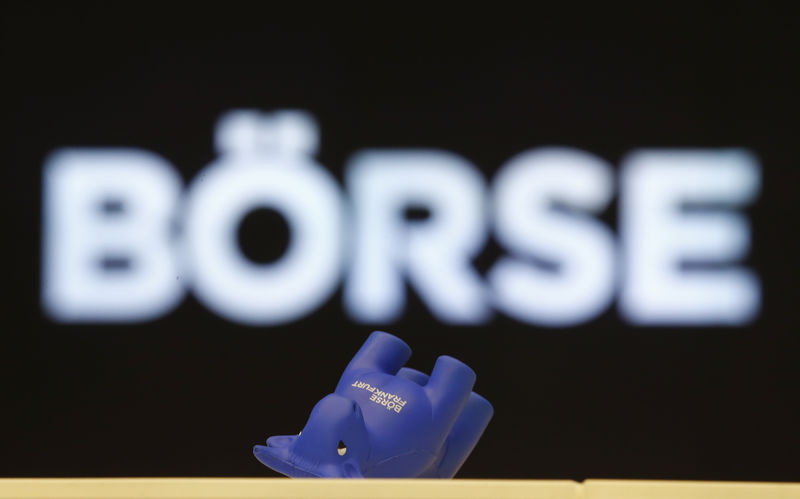By Peter Nurse
Investing.com - European stock markets traded mixed Wednesday, as investors digested the further easing of COVID restrictions in China as well as regional recessionary concerns.
At 03:55 ET (08:55 GMT), the DAX index in Germany traded 0.1% lower, CAC 40 in France traded down 0.1%, while the FTSE 100 in the U.K. climbed 0.1%.
German industrial production fell less than expected in October, dropping 0.1% on the month, instead of the forecast 0.6% decrease, in part dragged down by a decrease in production in energy-intensive industrial sectors.
While this release offered relatively good news, European investors are still having to cope with anemic growth and tightening monetary policy to cope with stubbornly high inflation.
Eurozone GDP is due later in the session, and is expected to show an economy that barely grew in the third quarter, climbing 0.2% on the quarter, while employment numbers are also due.
Additionally, the European Central Bank is expected to increase interest rates again next week, even if they are now "very near" their neutral level, according to ECB policymaker Constantinos Herodotou on Tuesday.
Analysts at Goldman Sachs see European stocks having a difficult start to 2023, after the strong rally to end this year.
“We expect 2023 to prove tougher after the resilience in earnings this year,” said Goldman analysts, citing margin pressure due to higher costs that will be harder to pass on in a recession.
Chinese authorities announced earlier Wednesday that a range of COVID restrictions had been eased, including allowing some people to quarantine at home and ending test requirements to enter most public venues.
These moves follow civil unrest over the strict nature of the country’s mobility curbs to stem another outbreak of infections.
GSK (LON:GSK) stock soared 11% and Sanofi (EPA:SASY) (NASDAQ:SNY) stock rose 7.4% after the drugmakers saw tens of thousands of lawsuits involving the heartburn medicine Zantac dismissed in a U.S. court.
Crude oil prices weakened Wednesday on worries over the global growth outlook, overshadowing the news of fewer new COVID-19 infections in China and the easing of a range of restrictions.
The American Petroleum Institute, an industry body, estimated a drawdown in U.S. crude stockpiles of around 6.4 million barrels last week, according to data released Tuesday, suggesting demand remained strong in the world’s largest consumer.
The official numbers from the Energy Information Administration are due later Wednesday.
Trading has been volatile as the ramifications of the EU import ban and Group of Seven's $60-a-barrel price cap on seaborne Russian oil remain unclear.
By 03:55 ET, U.S. crude futures traded 0.5% lower at $73.88 a barrel, while the Brent contract traded 0.4% lower at $79.03, falling below $80 for the second time in 2022 during the previous trading session.
Additionally, gold futures rose 0.3% to $1,787.85/oz, while EUR/USD traded 0.1% higher at 1.0476.
